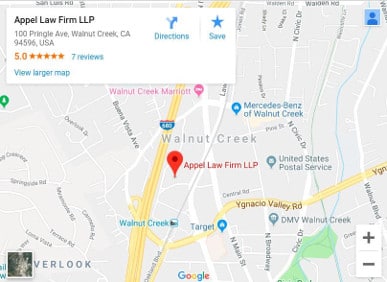If a worker sustains an injury while on the job, the employer compensates them through workers’ compensation (WC) insurance. If an individual suffers an illness or injury that is not related to their work, they can ask for time off for treatment through disability insurance (DI), which is a component of the state disability insurance program (SDI) through California’s Employment Development Department (EDD).
State Disability Insurance vs Workers’ Compensation: What is the Difference?
The SDI program pays individuals who are unable to work due to an injury or an illness that is not related to, or caused by their work. These benefits are paid weekly and are only temporary.
Workers’ compensation insurance assists workers following an injury or illness that is related to their work. WC insurance usually pays the worker’s medical bills and provides benefits for a worker who has either a temporary or a permanent disability. Furthermore, the employee may receive retraining benefits as well.
Can an Individual Receive Workers’ Compensation and Disability Insurance at the Same Time?
While you can file a disability insurance claim even after being hurt on the job, you typically cannot receive payment from both WC and DI. That said, there are certain situations when an injured employee will receive disability insurance benefits as well as workers’ compensation benefits: For example, in the event that the workers’ compensation insurance delays or denials paying the injured employee, the disability insurance may provide benefits until the WC insurance is implemented. If SDI payments are received, a lien for the amount of monies paid will be placed on the employee’s workers’ compensation case.
Another reason an injured employee may receive DI payments involves supplementing the workers’ compensation benefits when those benefits are less than the disability insurance benefits the individual would have received.
How to Determine if an Injury or Illness is Work-Related
A physician can usually determine if the cause of an individual’s disability is related to their work. When an employee believes that the disability they have is work-related, the worker needs to report to their employer. In addition, the physician must provide the employer’s workers’ comp insurance company with a detailed medical report that outlines the injury and/or illness for which the employee is requesting coverage.
Filing an Appeal for Workers’ Compensation Coverage in California
If the employee, employer or the employer’s WC insurance carrier does not agree with the issues regarding the workers’ compensation claim, an appeal may be filed. This appeal is filed with the Workers’ Compensation Appeals Board (WCAB). A WCAB judge will take the time to hear both sides of the case and then make a decision, which is referred to as a ‘Findings and Award.’
Can an Individual Collect Vocational Rehabilitation and DI Benefits at the Same time?
If an injured employee is receiving workers’ compensation benefits in the form of vocational rehabilitation temporary disability, temporary disability, or as a vocational rehabilitation maintenance allowance, they typically cannot receive disability insurance benefits as well. However, the employee may be able to receive partial payments (the difference between the two) if the workers’ comp benefits are less than the benefits they would receive from disability insurance.
At Appel Law Firm LLP, our attorneys have experience dealing with California workers’ compensation insurance as well as the state disability insurance program. Due to our extensive knowledge in this area of law, we can help you obtain all of the insurance benefits that you may qualify for due to your injury. To schedule your complimentary consultation, please contact our office today at 925-938-2000. We are located at 100 Pringle Avenue, Suite 730, in Walnut Creek, California.

Speak Your Mind